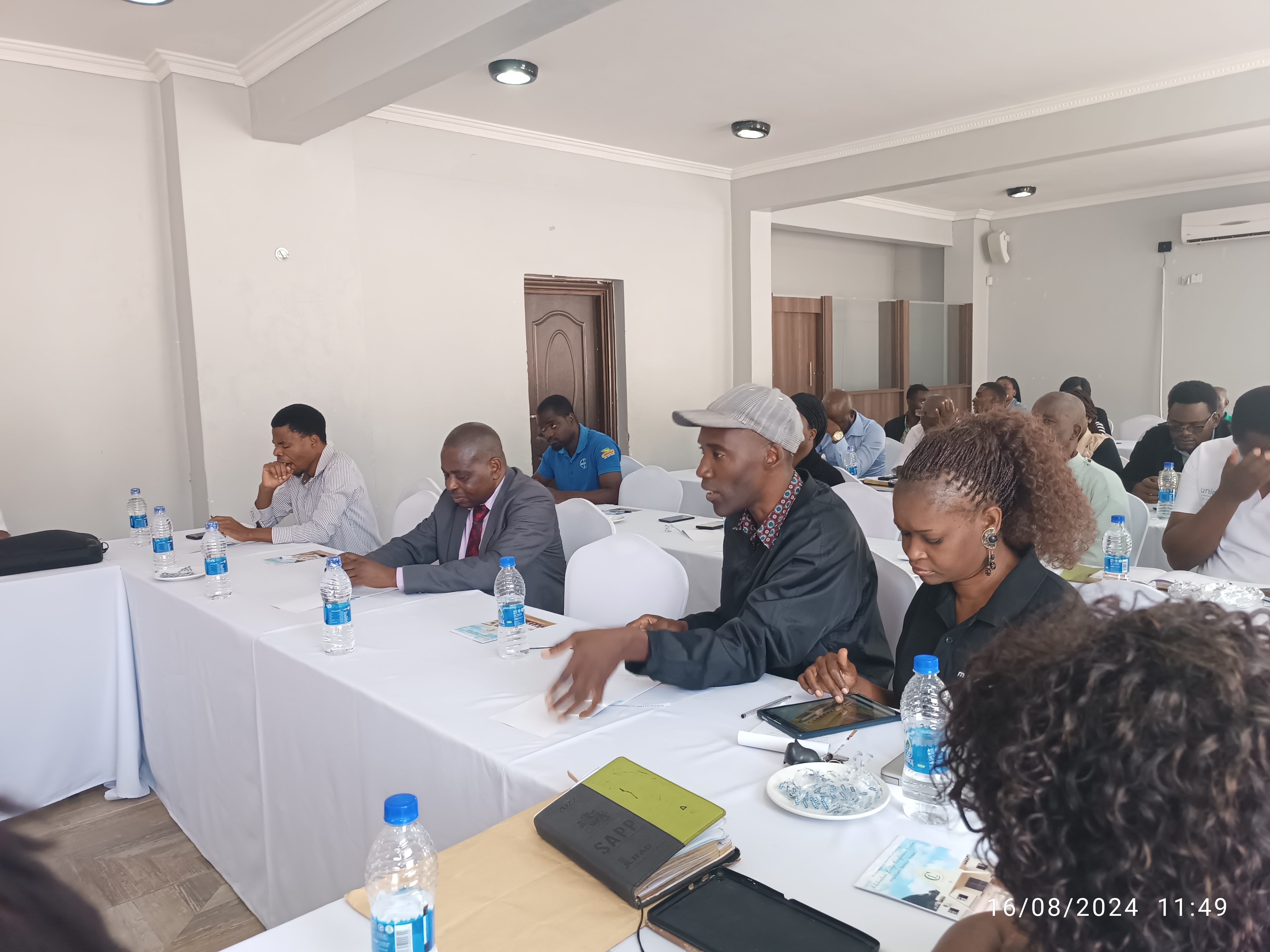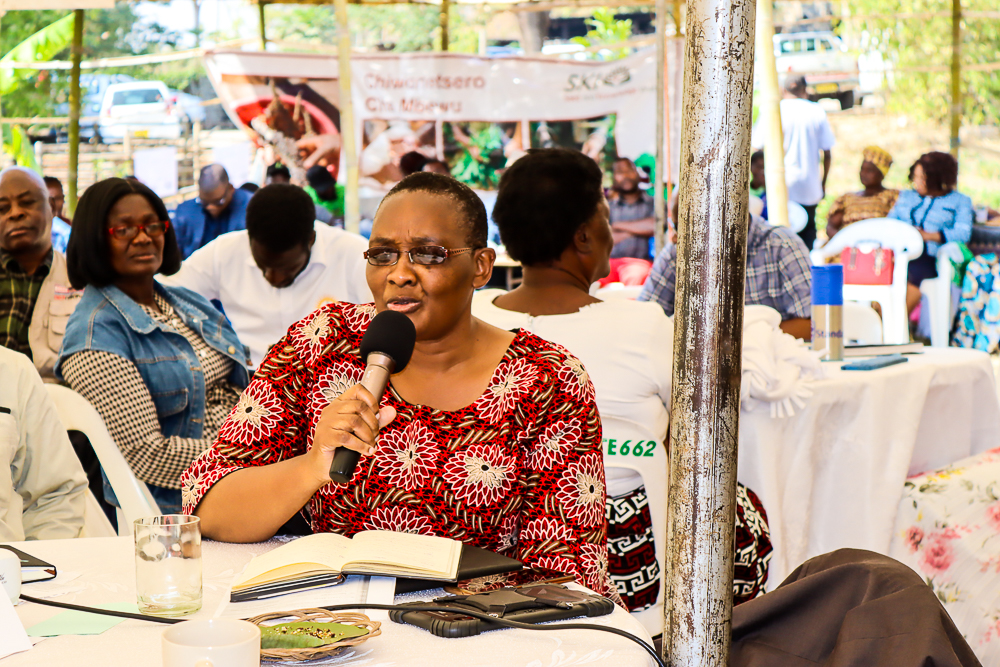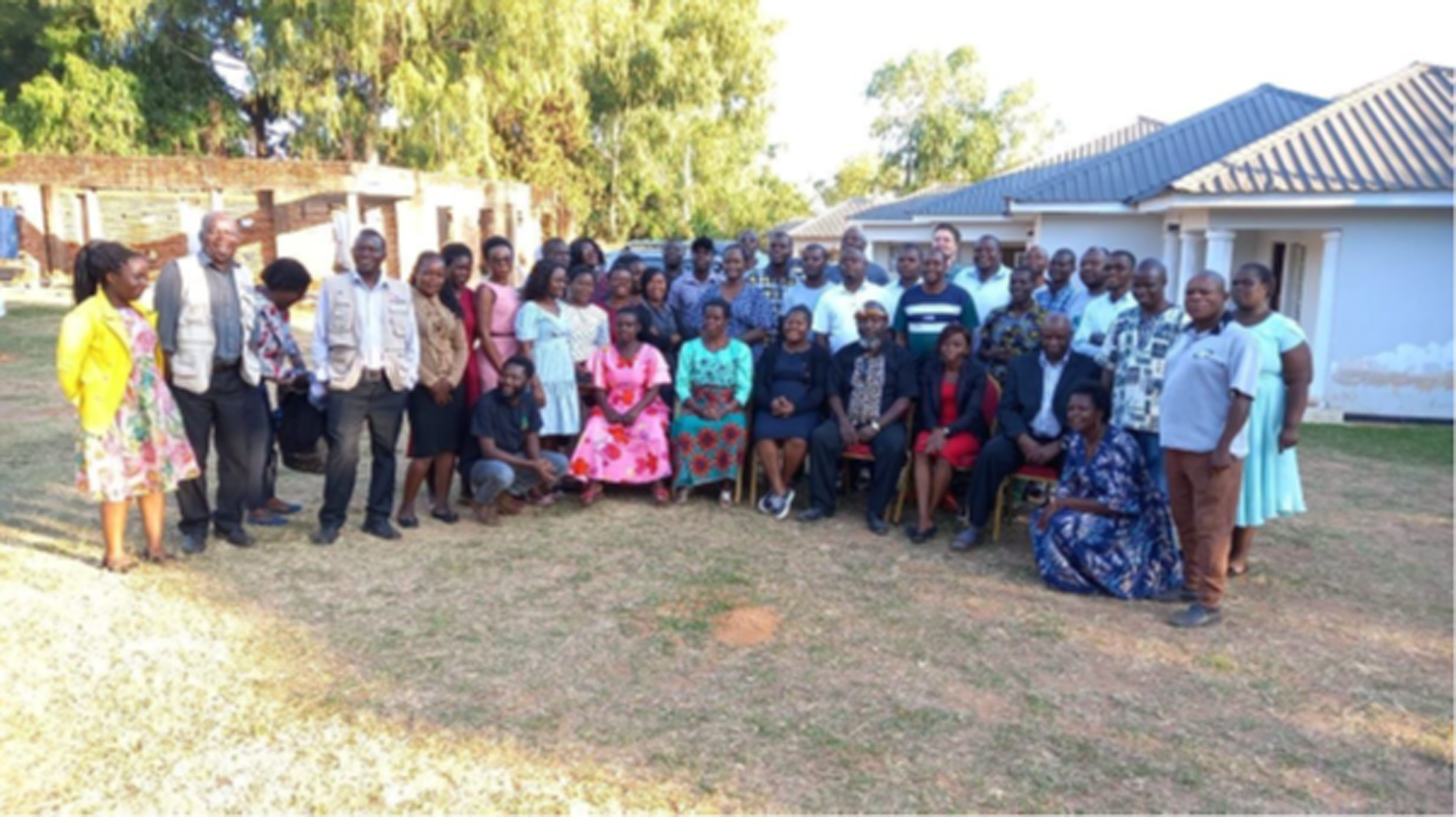The Participatory Ecology Land Use Management (PELUM) Malawi Chapter has taken a significant step towards initiating the process of consulting stakeholders on the National Agroecology Strategy (NAP) by engaging with officials from the District Agricultural Extension and Coordination Committee (DAECC) under the Blantyre ADD
In a bid to address the pressing issues of food insecurity, climate change, and environmental degradation, the Participatory Ecology Land Use Management (PELUM) Malawi Chapter and Churches Action in Relief and Development (CARD Malawi), recently convened the 2024 National Agroecology Conference in Thyolo district.
The event, held from 12 to 16 August 2024, brought together a diverse gathering of stakeholders including academia, government officials, NGOs, and farmer cooperative representatives under the theme: “The Solution to Climate Change and Economic Crisis”.
In her opening remarks, Gertrude Kambauwa, Director of Land Resource Conservation Department under the ministry of agriculture, described agroecology as an essential tool that can drive systemic change in the Malawi’s fight against food insecurity. However, she noted that the absence of agroecology policy is the greatest challenge limiting the implementation of agroecology projects.
“We have been doing some work especially in our department but due to emerging issues like climate change and others we have had our policy reviewed to incorporate all areas that were not there in the other policy and agroecology will be incorporated without any problems to at least give comfort to stakeholders that are promoting this approach”, she said.
PELUM Malawi's National Coordinator, Nozgenji Bilima, has issued a passionate call to action, urging organizations across the nation to prioritize agro ecology and permaculture as a critical element in addressing the challenges posed by climate change. Bilima's call came during the Annual General Meeting hosted by PELUM in Mzuzu on Thursday, where key stakeholders converged to share insights and experiences.
The primary objectives of the meeting were twofold: firstly, to spotlight PELUM's ongoing initiatives in the country, and secondly, to foster a collaborative environment for mutual learning among stakeholders. This gathering, a testament to the collective commitment to sustainable practices, drew the participation of 16 organizations equally dedicated to climate change and land management issues.
Nkhatabay witnessed a dynamic exchange visit this week, where we delved into the world of Permaculture activities in three prominent schools: Mkondezi, Chiguluwe, and Luwazi primary schools. This initiative aimed to foster knowledge-sharing and networking among the organizations dedicated to implementing ecological land use management with smallholder farmers.
Schools and Colleges Permaculture (SCOPE) took center stage, providing invaluable insights into their permaculture initiatives within these schools. What warmed our hearts was the delightful collaboration between students and their educators, working hand in hand to cultivate sustainable practices.
Venue: GreenHill Lodge
Date: 22rd – 25th May 2023
INTRODUCTION
As a way of enhancing coordination and networking of stakeholders, government, partners and farmers PELUM Malawi and Churches Action in Relief and Development organized an AgroEcology (AE) Reflection Conference in order for the participants to share experiences, demonstrate success stories and progresses being made on the ground: farmer communities and civil society organisations (CSOs) are successfully advocating for policy adaptation at local level. The Conference’s aim was to foster exchange, coordination and motivation of organizations implementing agroecology or interested in doing so.



